Listen
Mr Turner may be the gruntiest film of the year, possibly the gruntiest film ever. ‘Grunt, grunt, grunt,’ goes Mr Turner (Timothy Spall) as he sketches, paints, gropes his housekeeper, woos a Margate landlady, winds up John Constable something rotten. But what I now know is that when you have Spall doing the grunting, and Mike Leigh at the helm, as both writer and director, such gruntiness can be quite sublime, as can snorting and huffing.
This is a biopic of the painter J.M.W. Turner, ‘master of light’, and the greatest painter that ever lived according to many, but it is not a regular biopic. It is not Kirk Douglas as Van Gogh brawling with Gauguin, going mad and cutting his ear off (Lust for Life) as the camera cuts away to hands feverishly painting sunflowers or whatever. (Hmm. I wonder if that painting will be well-known one day?) It covers the last 25 years of Turner’s life, and there is no narrative arc as such. At first, you will be thinking: when is ‘The Story’ going to start? But ‘The Story’ never starts. It is episodic, a series of vignettes, and once you surrender to the rhythm, and the grunting, and fully immerse yourself in it, you will find yourself fully immersed in Turner’s world.
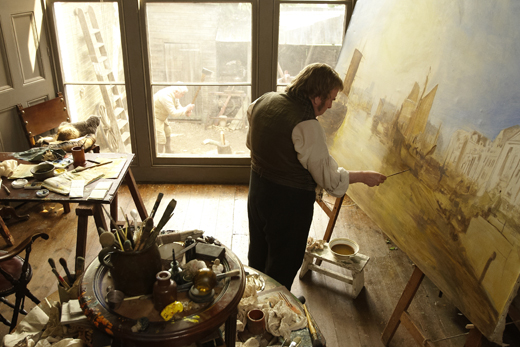
By the time the film opens, in the 1820s, Turner is already wealthy and famous, living in a grand house on Harley Street with his doting father (Paul Jesson), a former barber, and a lovelorn housekeeper (the terrific Dorothy Atkinson) whom Turner uses to satisfy his sexual urges. He gropes her. He has a quickie against the bookcase, from behind. Turner is not a man of social graces. He looks like he should be wearing gravy-stained clothes even when he isn’t. He paints viscerally, pounding the canvas with a brush, adding spit, egg yolk, smearing with fingers. (The painting scenes are judicious, just so you know; no iconic sunflower moments.) He is not a family man. He has two daughters by a former mistress (Ruth Sheen) to whom he is indifferent, and whose existence he publicly denies.
He is not a conversationalist or articulate. ‘Ehhhh’ he will grunt, snort or huff, speaking rarely. He is like a truffle pig. But Spall being Spall, he infuses Turner with a humanity, pathos and humour that otherwise wouldn’t be there. And his face! Spall’s face is all pork-chop jowls and ratty teeth which put me in mind of the pet hamster (Ernie) I once had. It is an unlikely canvas, but Spall proves himself the true artist here, painting in Turner’s every flicker of thought and the emotions he is unable to express otherwise: rage, tenderness, pain, love, sadness, mirth. We are never told what Turner is like, as far as is known. We see it.
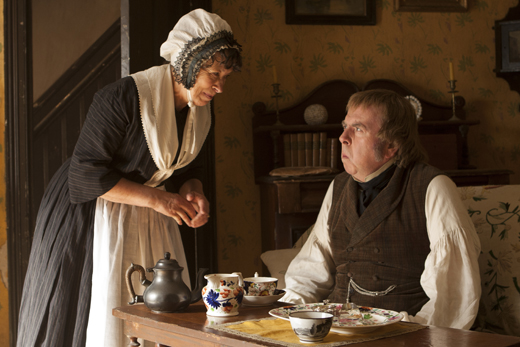
So, surrender to the rhythm, and the light — wisely, Leigh fills the screen with the landscapes that inspired Turner rather than the actual art — and the vignettes, which run from the playful to the quietly moving. Here’s Turner at the Royal Academy riling Constable with his use of red. Here’s Turner overturning period tropes by singing very badly at the piano. Here’s Turner enduring a discussion about gooseberries while visiting the art critic John Ruskin. (Yes! Back to Denmark Hill and Effie Gray. How are the parents? Not Julie Walters or David Suchet, alas, but still gloriously awful. And Effie is still sad.) And here’s Turner travelling to Margate, renting a room under a pseudonym and falling for the twice widowed landlady (a splendid Marion Bailey) who will become his last mistress. Their relationship is simple — he turns up; she looks after him — yet affecting. Turner is never one thing. He can be tender but also cruel; generous but also mean; warm but also cold. He is complicated, as we all are, but as is so rarely ever recognised on screen.
Leigh’s picture of Victorian England is marvellously detailed without being self-conscious in that Downton-y way. Leigh and Spall bring this home without conceit or fuss and although you never understand how Turner connects either with the subject of his paintings or the paintings themselves, chances are, neither did he. We only know that his work gave him the clarity of expression that otherwise eluded him. This is the gruntiest, snortiest, huffiest film of any year, but it is beautiful too.
Got something to add? Join the discussion and comment below.
Get 10 issues for just $10
Subscribe to The Spectator Australia today for the next 10 magazine issues, plus full online access, for just $10.
You might disagree with half of it, but you’ll enjoy reading all of it. Try your first month for free, then just $2 a week for the remainder of your first year.

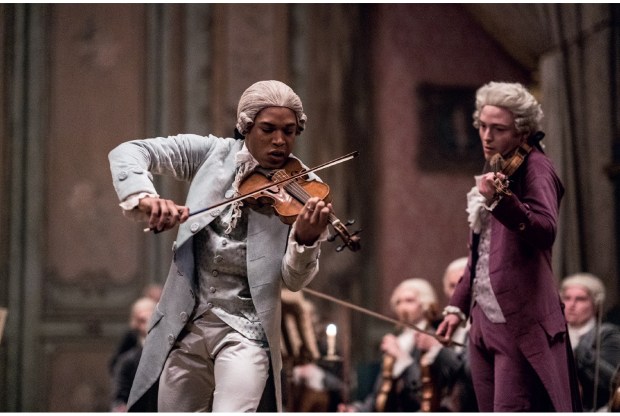
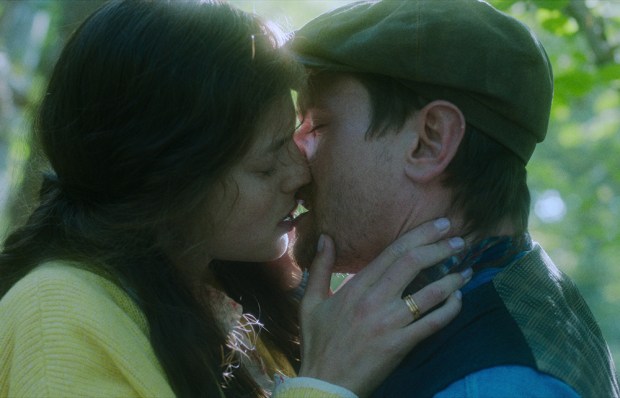

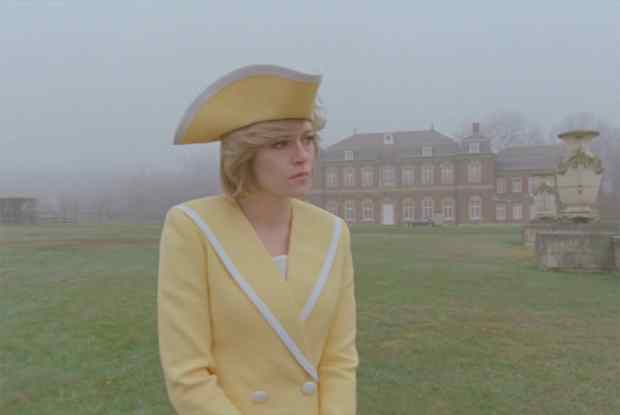








Comments
Don't miss out
Join the conversation with other Spectator Australia readers. Subscribe to leave a comment.
SUBSCRIBEAlready a subscriber? Log in